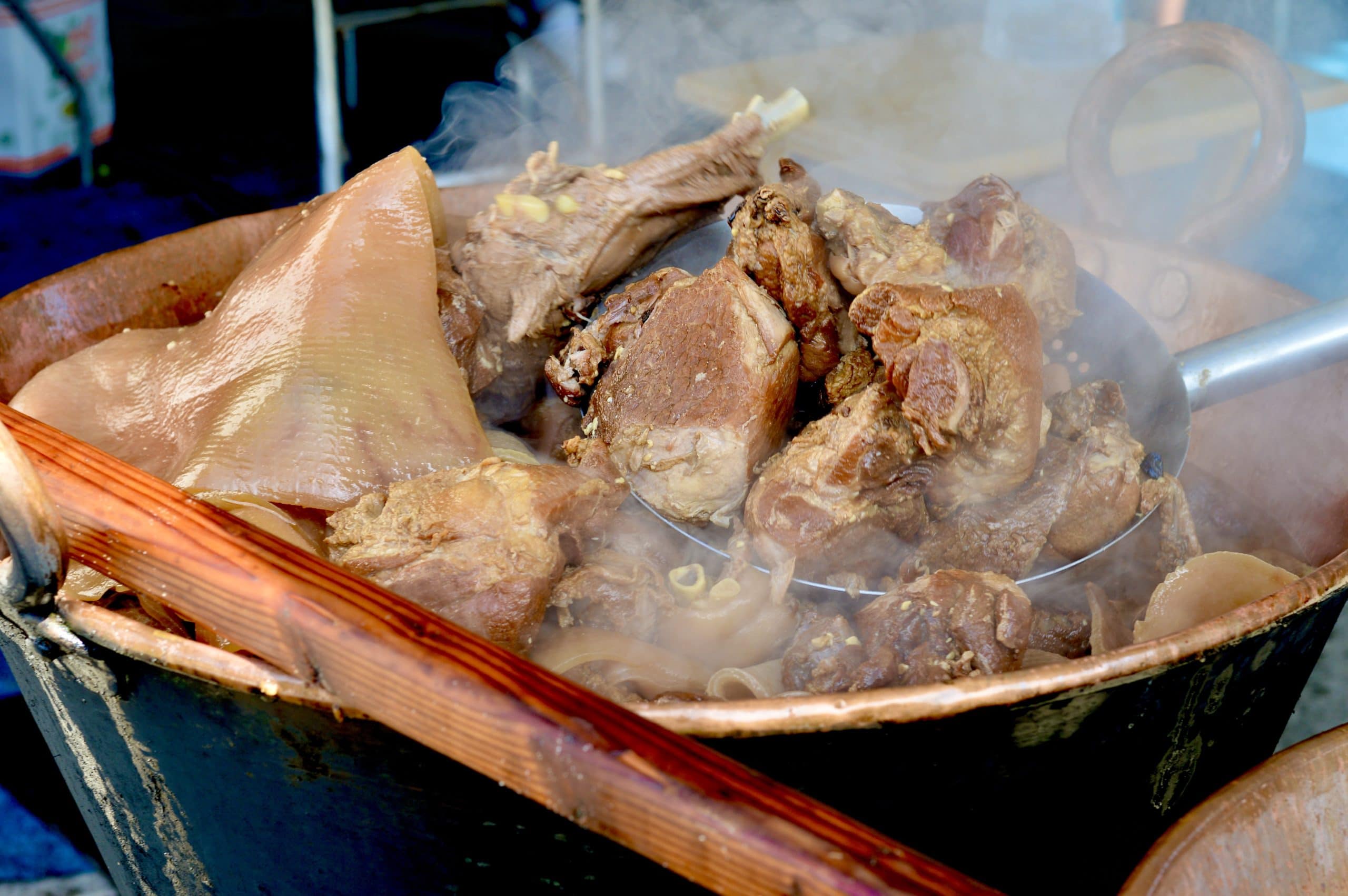There are certain sounds that warn you of a looming unforgettable carnitas experience: the gentle bubbling of oil in large copper pots, a heavy butcher knife pounding against a surface, and the crinkling of foil as it’s being filled with bronzed, caramelized meat being weighed and wrapped.
Around the corner from St. John’s church in the City of Hawthorne, follow these telltale signs and you will arrive at Carnitas El Artista.
On a Sunday morning, there is a line of folks formed six feet apart up to an open garage in Gustavo Chavez’s backyard. Nancy, Gustavo’s wife, stands next to him, collecting payment while his mother, Guadalupe Ixta, and 14-year-old son, Kevin, are packaging freshly made salsa and pickled onions with habanero into small ziplock bags.
On this day, the family is hosting a fundraiser for the untimely funeral of a family friend.
It's another fundraiser that has given them a place in the community and a group of loyal followers and supporters whose growing demand for his carnitas over the years has given Gustavo the encouragement to take the next step and go full-time as a legitimate carnitas pop-up.
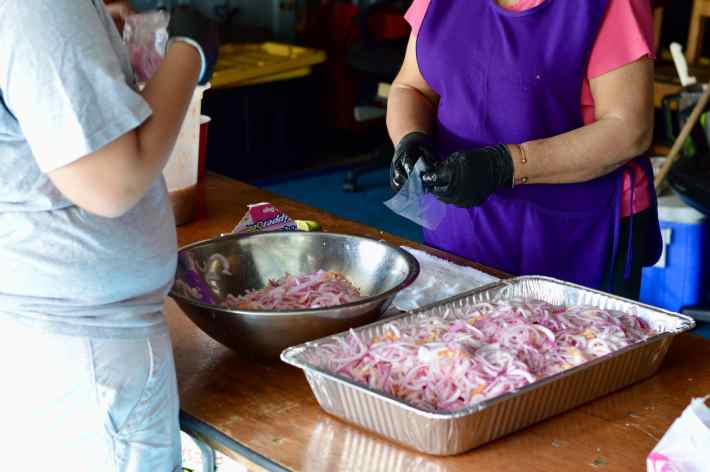
“I want to be a legit pop-up.” He tells L.A. Taco. “ I’ve been doing this for so long now, that I’ve started to build a large demand just from people that I’ve met through the fundraisers.” He points to the 15 people waiting calmly and happily in his driveway. “You see all these folks, we all know each other now. I know everybody here by name.” A fact Grandpa Salvador would have joked about.
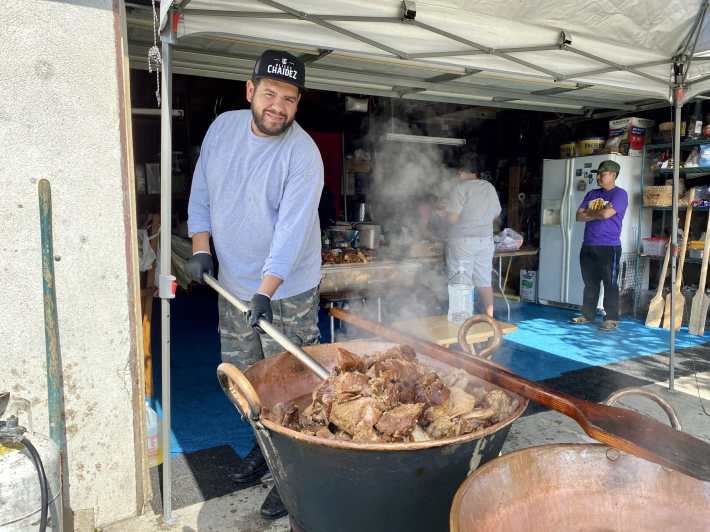
For this DIY carnitas stand, being a taquero goes beyond serving their neighborhood nourishing and delicious carnitas in the style of Tangancicuaro, Michoacán. It means lending a helping hand when someone in their community needs it the most.
The carnitas is “traditional rancho style” as Gustavo puts it, unafraid of giving away any secrets; just garlic, lime, salt, and a little coke for coloring.
Gustavo knows how help from your support network can make all the difference in the world when dealing with a tragedy. Kimberly, Gustavo’s sister, who had a promising future at Chico State, died in a car crash while returning home to visit in 2006. Guadalupe, mother and proud taquera of mesquite-only carne asada served near LAX for years with her kids at her side, devastated by her daughter’s death, would make her last taco for the public that night. “Nobody is ever prepared for a death in the family.” Explains Gustavo. “We had no money, nothing planned. Who thinks about that stuff? It turned out, their community does.
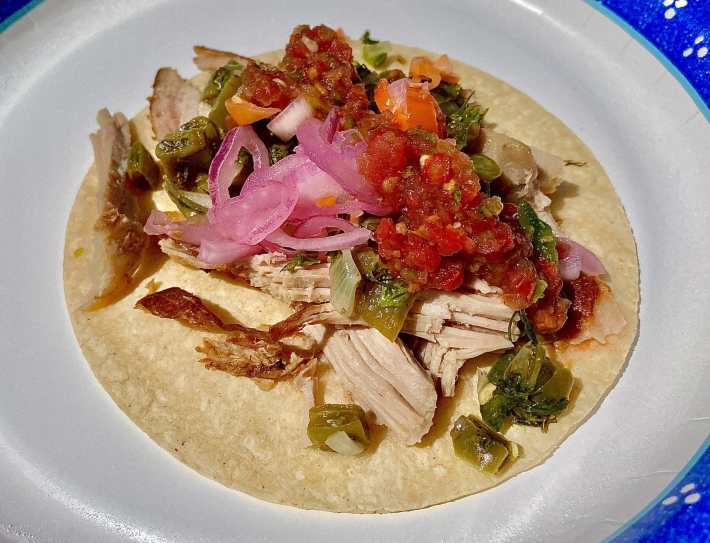
People from everywhere came to support. “People we didn’t even know. Someone raised money for us and people brought us food for days. They brought us so much food! The craziest part is that someone even donated the burial plot. We were blown away.”
“We have to reciprocate,” adds Guadalupe as she holds her hand up in a giving gesture. A short time after Kimberly’s passing, the family slowly started making carnitas for a few fundraisers which became a more common occurrence by 2012.
Pull yourself up by your carnitas
In a way, it’s also been Gustavo’s reprieve from his own troubled past. Gustavo tells us, “Honestly, man. I have a crazy story. I went from sleeping on cardboard boxes and being in jail to becoming an electrician who started cooking as a hobby and was basically pushed by my followers to sell carnitas. And here I am now, pursuing this more seriously than my 15-year career as an electrician. But I love it!”
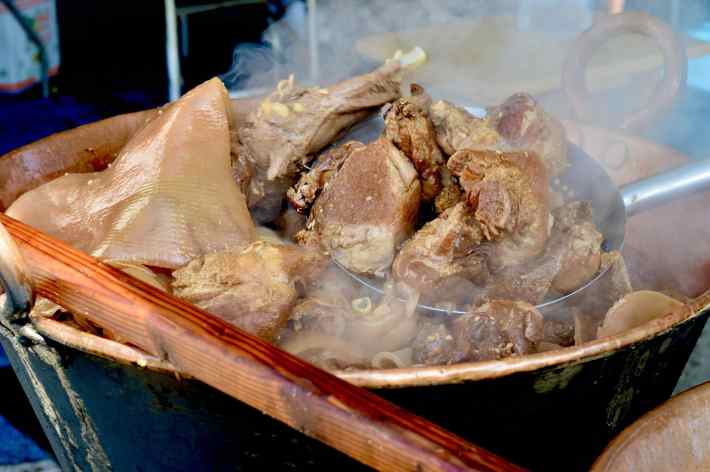
They hadn’t popped up in his backyard since the City of Hawthorne ordered him to stop in 2019, but with the current pandemic, they have nowhere else to set up a fundraiser.
Before they were stopped, Gustavo had enjoyed serving carnitas once or twice a month going back as far as 2013. Sometimes for fundraisers, other times for fun. That’s when he drove down to Santa Clara, Michoacán, put two big copper pots in the back of his truck, and played corridos all the way back to Hawthorne, CA.
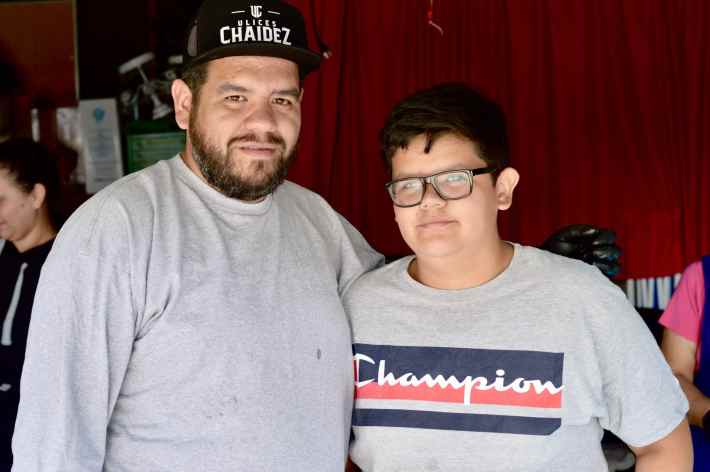
It’s also the year he started using the name Carnitas El Artista after his nickname that his grandfather, Salvador Ixta, jokingly gave him. According to Gustavo, “My grandpa always used to tease me because everywhere we went, there was always someone there I was cool with. So he would ask, ¿Eres Artista o que? (You famous or what?)”
Salvador, from Tangancicuaro, Michoacán, was the first of the carnitas masters. Gustavo's father, Roberto, and his family also taught Gustavo the craft. He is now the third generation and his son, at 14, can make his own carnitas making him the fourth. Through Carnitas El Artista, the family found a way to pay forward a debt from a community of strangers that selflessly and without hesitation once fundraised for them when they were in need.
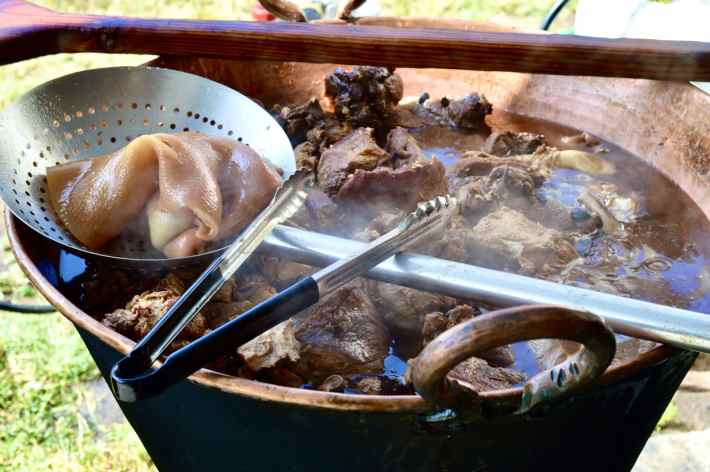
The carnitas is “traditional rancho style” as Gustavo puts it, unafraid of giving away any secrets; just garlic, lime, salt, and a little coke for coloring. “Once you go to the cities in Michoacán, they’ll start putting stuff like bay leaves, piloncillo, oranges, milk, and all kinds of shit in there,” Gustavo tells us as he hands over a small piece to try.
The next step for Carnitas El Artista is the purchasing of a trailer. Gustavo believes, “A trailer is going to be the best thing for us. Our whole deal is to be a pop-up. I don’t want to hide our food in a truck. It’s too limited on what you can do. If people don’t see this, (while pointing at his carnitas) it won’t sell. People want to see what they are getting.”
El Artista is already operating under a catering permit which they’ve been using at fundraising events, quinceañeras, and weddings before the stay-at-home orders were issued. They had also started experimenting with pop-ups in Compton, Lynwood, Inglewood, and Lawndale.
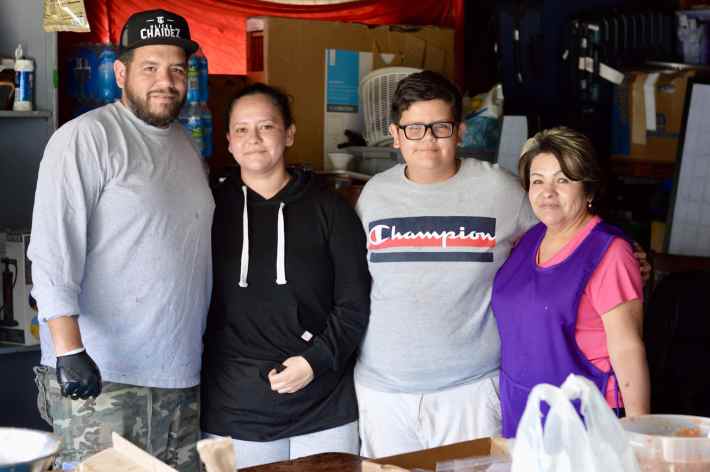
As for right now, the pandemic has slowed them down. Not only is money short in the community, according to Gustavo, but so is meat, and prices have jumped by as much as 60 percent.
They are heating up those big copper pots about once a month until they get their trailer within the next few months and set up in different neighborhoods across L.A. In the meantime, a drive to the South Bay isn’t that far, especially on a weekend morning, and the reward is a taco for the cause.
Just look for the line of people and listen for the taco-phony.
